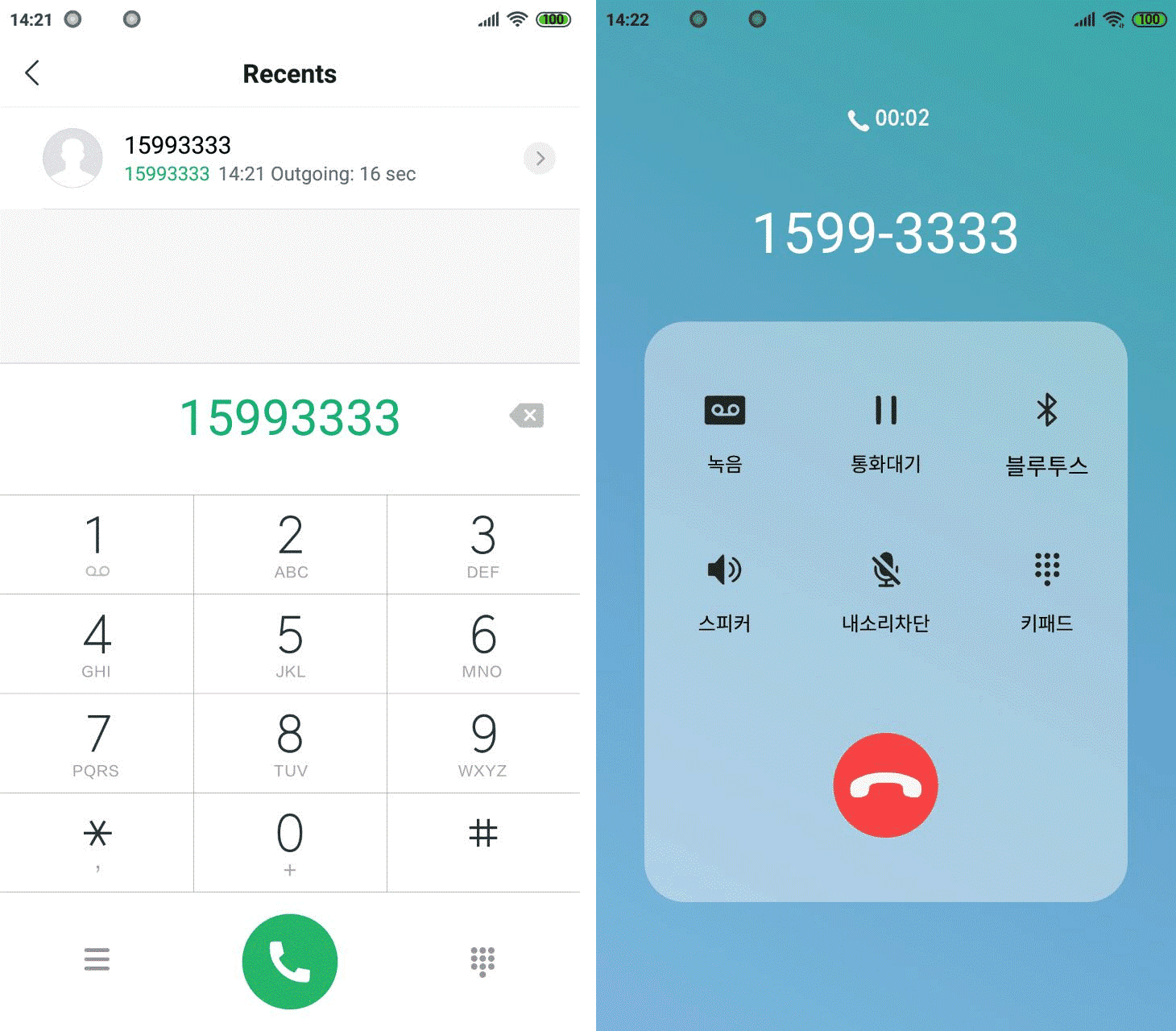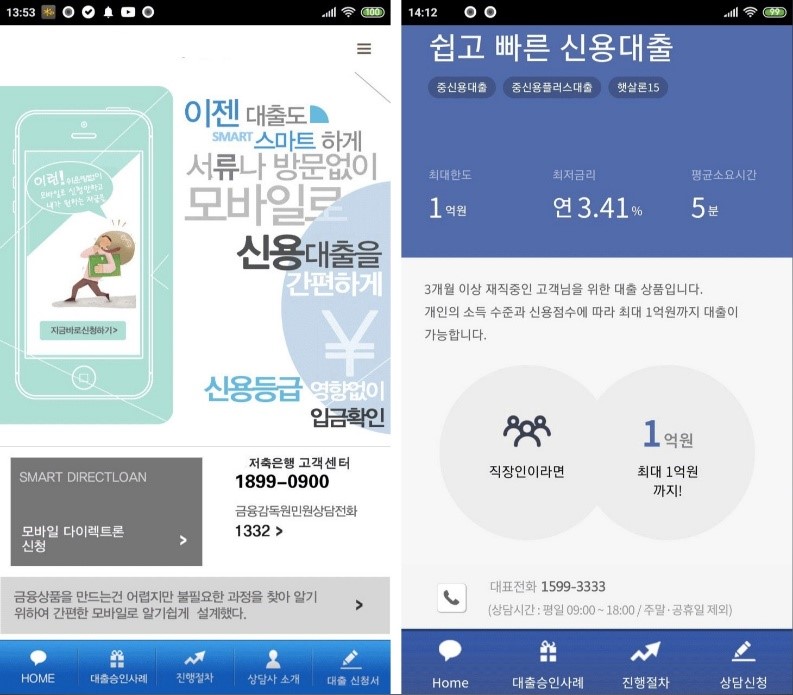Woburn, MA – April 11, 2022 – Today Kaspersky released an analysis of the banking Trojan, Fakecalls, which masquerades as a banking app and mimics the telephone customer support of the most popular South Korean banks. Unlike regular banking Trojans, it can discreetly intercept calls to real banks using its own connection. Imitating bank employees, the cybercriminals try to coax payment data or other confidential information out of the victim.
Kaspersky researchers uncovered the Fakecalls banking Trojan in January 2021. During their investigation they found that when a victim calls the bank’s hotline, the Trojan opens its own fake screen call in place of the bank’s authentic one. There are two possible scenarios that unfold after the call is intercepted. In the first, Fakecalls connects the victim directly with cybercriminals who present themselves as the bank’s customer support. In the alternative scenario, the Trojan plays prerecorded audio that imitates a standard greeting from the bank and mimics a standard conversation using an automated voicemail.
From time to time, the Trojan inserts small audio snippets in Korean. For example, “Hello. Thank you for calling our bank. Our call center is currently receiving an unusually large volume of calls. A consultant will speak with you as soon as possible.” This enables cybercriminals to gain the trust of their victims by making them believe that the call is real. The main objective of such calls is to coax out as much vulnerable information, including bank account details, from their victims as possible.

Fakecall screen that the Trojan opens after the victim tries to call the real bank
However, cybercriminals using this Trojan have failed to consider that some of their potential victims may use different interface languages, for example, English instead of Korean. The Fakecall screen only has a Korean version, which means some of the users using the English interface language will smell a rat and identify the threat.
When downloaded, the Fakecall app, disguised as an authentic banking app, asks for a variety of permissions, such as access to contacts, microphone, camera, geolocation and call handling. These permissions allow the Trojan to drop incoming calls and delete them from the device’s history, for instance, when the real bank is trying to reach its client. The Fakecalls Trojan is not only able to control incoming calls but is also able to spoof outgoing calls. If cybercriminals want to contact the victim, the Trojan displays its own call screen over the system’s one. As a result, the user does not see the real number used by the cybercriminals but the phone number of the bank’s support service shown by the Trojan.
Fakecalls completely mimics the mobile apps of well-known South Korean banks. They insert the real bank logos and display the real support numbers of the banks as displayed on the main page of their official websites.

The Trojan imitates the apps of the most popular Korean banks
“Banking clients are constantly told to be aware of calls from scammers,” said Igor Golovin, security researcher at Kaspersky. “However, when they are directly trying to reach bank customer support themselves, they do not expect any danger. Generally speaking, we trust bank employees – we call them for help and, therefore, we may tell them, or their impersonators, any requested information. The cybercriminals who created Fakecalls have combined two dangerous technologies: banking Trojans and social engineering, so their victims are more likely to lose money and personal data. When downloading a new mobile banking app, take into consideration what permissions it asks for. If it’s trying to get suspiciously excessive access to device controls, including call handling access, then it is most likely that the app is a banking Trojan.”
Read the full report about Fakecalls Trojan on Securelist.
To prevent your money or personal data from falling into fraudsters’ hands, Kaspersky recommends:
- Only downloading apps from official stores. Do not allow installation from unknown sources. Official stores run checks on all programs and if malware does manage to sneak in, it usually gets promptly removed.
- Paying attention to what permissions apps ask for and whether they really need them. Don’t be afraid to deny permissions, especially potentially dangerous ones like access to calls, text messages, accessibility and so on.
- Never giving confidential information over the phone. Real bank employees will never ask for your online banking login credentials, PIN, card security code or confirmation codes from text messages. If in doubt, go to the bank’s official website and find out what employees can and can’t ask about.
- Install atrusted security solution that protects all your devices from banking Trojans and other malware.
About Kaspersky
Kaspersky is a global cybersecurity and digital privacy company founded in 1997. Kaspersky’s deep threat intelligence and security expertise is constantly transforming into innovative security solutions and services to protect businesses, critical infrastructure, governments and consumers around the globe. The company’s comprehensive security portfolio includes leading endpoint protection and a number of specialized security solutions and services to fight sophisticated and evolving digital threats. Over 400 million users are protected by Kaspersky technologies and we help 240,000 corporate clients protect what matters most to them. Learn more atusa.kaspersky.com.
Media Contact
Sawyer Van Horn
sawyer.vanhorn@Kaspersky.com
(781) 503-1866




